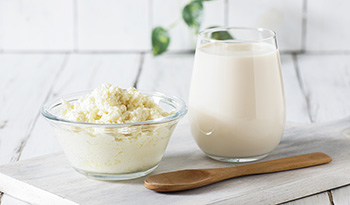Colon Health and Berberine: A Study Finds Promising Antioxidant Effects

What is Berberine?
Berberine is extracted from the Barberry (Berberis vulgaris ) shrub, which contains plants that are both evergreen and deciduous. Barberry is found in Europe, North Africa, the Middle East and throughout Asia. The berries produced are a rich source of vitamin C, which can help boost immune, cardiovascular, brain, and skin health.
Berberine is the active ingredient and is consumed as an herbal food or as a supplement. It has been shown in scientific studies to have various health benefits. It is commonly used in Traditional Chinese Medicine (TCM) and ayurvedic medicine, a traditional healing practice that originated in India.
What is Berberine Used For?
Berberine has been used by ancient healers for its ability to treat infectious diarrhea for centuries. It also has antioxidant properties which can help reduce inflammation and may be beneficial in the prevention and treatment of those with heart disease.
In addition, berberine may help lower blood sugar, fight bacteria and viruses and may even help prevent colon polyps from developing.
Berberine and Colon Health
Some types of colon polyps are considered pre-cancerous and may increase the risk of colon cancer if not removed. The precancerous polyps which can turn into cancer are called adenomas. Preventing them from growing and/or recurring may be beneficial.
Colon Cancer can affect up to 1 in 20 people worldwide and is the third most common cancer in men and the second more common in women. In 2018, almost 2 million people worldwide were diagnosed with colon cancer.
Risk factors for colon cancer include older age, family history, a low fiber diet, a sedentary lifestyle and certain types of colon polyps. A healthy diet, regular exercise, and screening for colon cancer are an important part of prevention. A January 2020 study showed that berberine may be helpful in preventing the development of colon polyps.
Researchers evaluated the benefits of Berberine versus a placebo pill in over 800 people. The double-blind placebo-controlled trial was done at 7 hospitals across China. The people in the study ranged from 18-75 years of age. The subjects were known to have had a history of pre-cancerous colon polyps, specifically, tubular adenomas.
429 patients were given 300 mg twice per day of berberine while 462 patients were given a placebo pill. The participants then had a colonoscopy 1 and 2 years after starting the study. At the end of the study, 155 or 36% of those who took the berberine had recurrent colon polyps. In the group who took the placebo, 216, or 47% had recurrent colon polyps.
The researchers concluded that those who took the berberine were 23 percent less likely to have recurrent colon polyps. No serious adverse effects were noted although one percent of the berberine users did report some constipation.
This study shows that berberine may be an effective strategy in helping one reduce their risk for developing colon polyps. It is important that those 50 years of age or older consult with their doctor about colon cancer screening tests. Those with a family history may need to be checked before age 50.
References:
- Berberine and its derivatives: a patent review (2009 - 2012). Singh IP, Mahajan S Expert Opin Ther Pat. 2013 Feb; 23(2):215-31
- Drug Metab Rev. 2017 May;49(2):139-157. doi: 10.1080/03602532.2017.1306544. Epub 2017 Apr 3.
- Lancet Gastroenterol Hepatol. 2020 Jan 8. pii: S2468-1253(19)30409-1. doi: 10.1016/S2468-1253(19)30409-1.
DISCLAIMER:This Wellness Hub does not intend to provide diagnosis...





























































































